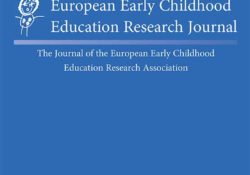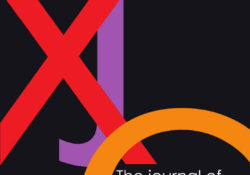tandfonline.com har udgivet en rapport under søgningen “Teacher Education Mathematics”: Exploring social work students’ attitudes toward research courses: comparing students in Australia and Switzerland Link til kilde
Like this:
Like Loading...
tandfonline.com har udgivet en rapport under søgningen “Teacher Education Mathematics”: ABSTRACT ABSTRACT Educational policies increasingly emphasise early childhood science engagement. As key influencers in children’s early learning, parents (n = 85) attending a science workshop in three urban schools in Ireland were surveyed regarding their attitudes towards science. Seventy per cent of parents believed that science education should begin in the pre-school years, before the age of four. Despite high levels of education, at least half of the parents expressed some lack of confidence in talking about, and in doing science with, their young children. Parents who reported less confidence in doing science activities with their children also reported reduced frequency of activities for five out of the seven science learning opportunities listed. Mothers, compared to fathers, reported less confidence in doing… Continue Reading →
Like this:
Like Loading...
eric.ed.gov har udgivet: This investigation compared the attitudes of business and elementary education majors on the enjoyment and value of mathematics. Fifty elementary education majors and 58 business majors participated. The mathematics attitude questionnaire contained two sections of questions: eight questions on the enjoyment of mathematics and eight questions on the value of mathematics. The attitude of enjoyment was not significantly different between the business and elementary majors. However, elementary education majors valued mathematics significantly higher than did the business majors. It was also found that both the elementary education and business majors value mathematics to a significantly higher degree than they enjoy mathematics. No significant differences were found between male and female business majors’ enjoyment and value scores. (Author/YP) Link til kilde
Like this:
Like Loading...
eric.ed.gov har udgivet: A number of initiatives have been successful in helping teachers change their knowledge and practices in teaching mathematics. This paper reports on the results of a reform effort using curriculum materials as a vehicle for change. The professional development program called “Insights and Investigations” incorporated four types of professional development experiences. Teachers met monthly in grade-level sessions with one of three mathematics educators on the Delaware SSI/PRoject 21 staff in order to get collegial support and encouragement as they implemented “Investigations” in their classrooms. According to the teacher participants, the combination of utilizing “Investigations” curriculum units in the classroom, having the opportunity to do “Investigations” with their colleagues before teaching it in the classroom, reflecting on their teaching and on student learning through written reflections and discussions,… Continue Reading →
Like this:
Like Loading...

tandfonline.com har udgivet en rapport under søgningen “Teacher Education Mathematics”: ABSTRACT ABSTRACT Mathematicians in academic institutions utilize a variety of resources and strategies to seek, find, and use scholarly information and news. Using a sample of mathematicians, researchers surveyed 112 students and faculty at four Canadian university institutions to explore self-perceived success rates, resources consulted, databases used, use of social media, and citation management systems. Further, 12 follow-up interviews were completed with mathematicians to better interpret survey results, resulting information-seeking behaviors, choices, strategies, and feelings on keeping up to date with information needs. According to survey results, a minority of mathematicians (12.5 percent) acknowledged that they were successfully keeping up to date. However, a significant number of mathematicians (28.6 percent) indicated that they were unsuccessful and could do better in… Continue Reading →
Like this:
Like Loading...
eric.ed.gov har udgivet: Previous research shows inconsistent relationships between parent involvement and academic achievement and often asks why such inconsistencies occur. The research proposes a theoretical model that separates parent involvement into those practices linking parents to children and those practices linking parents to other adults in the school environment. The researcher hypothesizes that parent-child (i.e. discussion and monitoring) and parent-school (i.e. educational support strategies and Parent Teacher Organization involvement) practices will differentially affect student attitudes (educational expectations), behaviors (absenteeism, homework, truancy), and achievement (math and science). Using a national survey conducted in the United States of schools and students, the National Education Longitudinal Study (NELS:88), The research estimates a series of hierarchical models to test the direct and indirect effects of parent involvement on student attitudinal, behavioral and academic… Continue Reading →
Like this:
Like Loading...
eric.ed.gov har udgivet: This paper presents results of a study that sought to answer the question, “How does integrating dance and math in an intense co-teaching model of integration affect student attitudes toward learning math?” The goal of the dance/math project was to engage students in math in ways that reached students’ multiple intelligences and encouraged them to make complex connections and try new problem solving techniques. The classroom teachers who designed and implemented the project hypothesized that students who worked with a dancer once a week to learn math concepts would become more engaged in mathematics and have more successful and positive experiences with mathematics than students who did not work with a dancer. Overall there was a significant difference between the dance/math students’ and the non-dance/math students’ attitudes… Continue Reading →
Like this:
Like Loading...
eric.ed.gov har udgivet: In this study, it was revealed that the factors influencing the future educators’ attitudes towards the environment. The survey was conducted between 2013-2014, on the freshman and the senior students studying in two different education faculties providing training within the boundaries of Turkish Cypriot. As a result, it has been found that persons who take any course related to environment, become a member of any environmental organizations, join any environmental activities, and follow any publication related to the environment by throughout education life contribute the formation of environmental protection awareness for them. The majority of the participants had an ecocentric attitude. To be increased of the environmental awareness for teacher candidates studying in math and social sciences, the necessity and importance of a number of environmental activities… Continue Reading →
Like this:
Like Loading...
eric.ed.gov har udgivet: The aim of this study is to investigate the reasons of the students’ attitudes towards interactive whiteboard (IWB) use in mathematics classrooms in middle schools and high schools. For this purpose the effect of IWB’s features, students’ mathematics anxiety, teachers’ ICT integration, students’ mathematics achievement and gender to students’ attitudes towards use of interactive whiteboard were investigated. This study is a descriptive research designed as a relational survey method. The research sampling consisted of 350 students in middle schools and 557 students in high schools in Balikesir. The Attitude and Characteristics of IWB scale to measure the students’ attitudes and the perceived features of IWB was used. Also the Mathematics Anxiety scale that consists of five items was used to measure students’ mathematics anxiety. To determine the… Continue Reading →
Like this:
Like Loading...
tandfonline.com har udgivet en rapport under søgningen “Teacher Education Mathematics”: Abstract Formulae display:?Mathematical formulae have been encoded as MathML and are displayed in this HTML version using MathJax in order to improve their display. Uncheck the box to turn MathJax off. This feature requires Javascript. Click on a formula to zoom. Abstract People’s attitudes toward mathematics are multifaceted. Across four studies, we found that children and adults have different attitudes about mathematics when asked specifically about whole numbers, as opposed to fractions. The vast majority of children and adults reported negative attitudes toward fractions despite having positive attitudes toward whole numbers. Across both children and adults, the difference in fraction and whole-number attitudes was present across levels of math achievement, indicating that it was not just participants who were worse… Continue Reading →
Like this:
Like Loading...



